May 2022
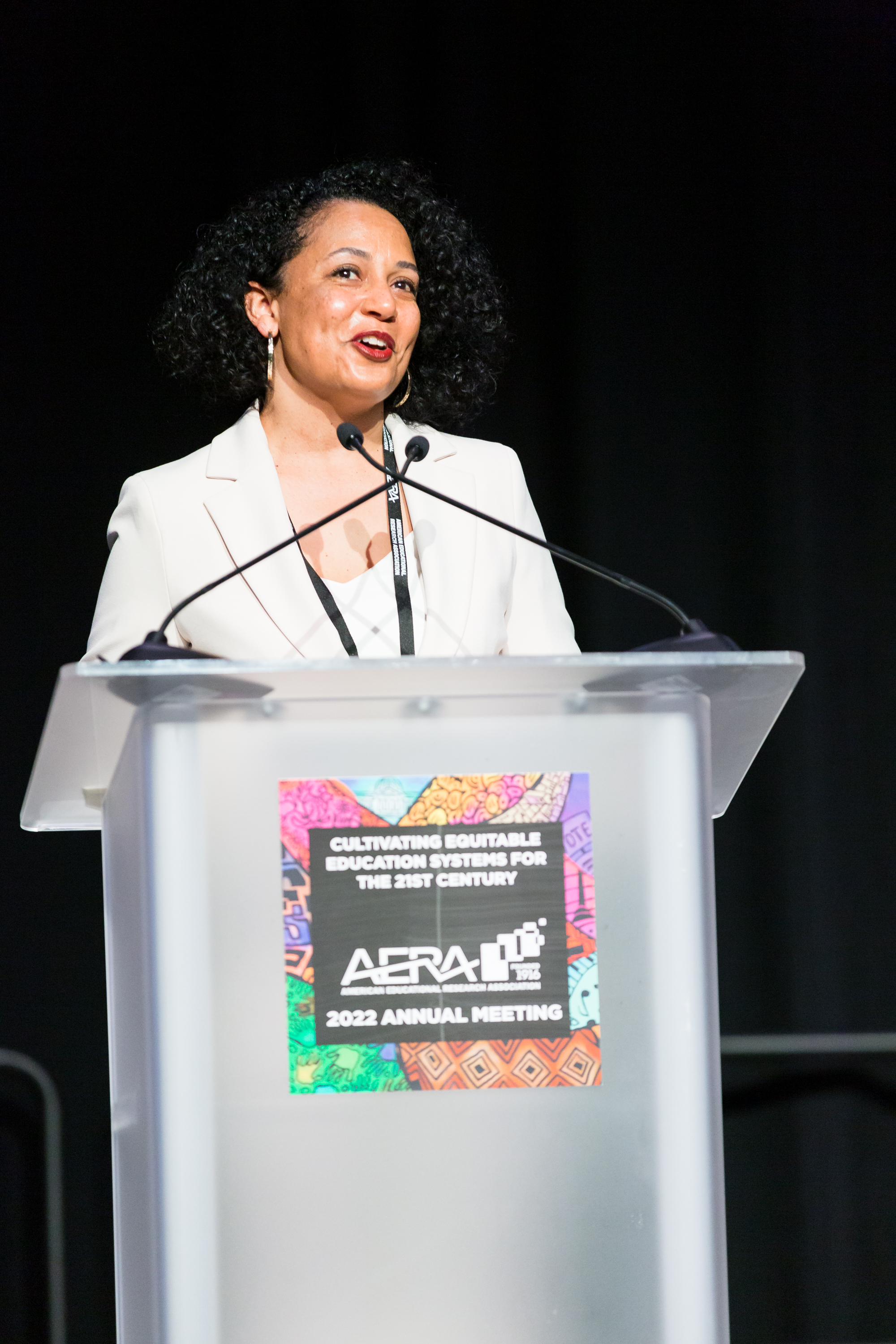 |
| AERA 2021–22 President Na’ilah Suad Nasir |
The 2022 AERA Annual Meeting brought together nearly 13,700 scholars, graduate students, policy leaders, and practitioners in San Diego and online for the largest education research conference in the world. Attendees represented 75 countries.
Centered on the theme “Cultivating Equitable Education Systems for the 21st Century,” presidential sessions, lectures, symposia, and poster sessions spotlighted high-quality education research and its connection to important issues in education practice and policy, including teaching diverse populations, bringing equity to STEM education, and the impact of COVID-19 on higher education.
“Two years after the onset of the COVID-19 pandemic, we were thrilled to convene so many scholars, policymakers, and practitioners in-person in San Diego and virtually,” said AERA Executive Director Felice J. Levine. “The compelling, high-quality programming and the high levels of engagement and enthusiasm among meeting participants are a testament to the dedication and hard work of AERA President Na’ilah Suad Nasir and her program chairs Tryphenia Peele-Eady and Elizabeth Tipton, division and SIG program chairs, all AERA members who volunteered their time and expertise, and AERA staff.”
Highlights from the 2022 Annual Meeting included AERA 2021–22 President Na’ilah Suad Nasir’s presidential address, major lectures from distinguished speakers and award winners, presidential program sessions, the awards ceremony, and the Research and Science Policy Forum series. For details, see the related stories in this issue of Highlights. Other high points were the paper sessions, roundtables, poster sessions, and symposia that reflected researchers’ open submissions to divisions, SIGs, and committees.
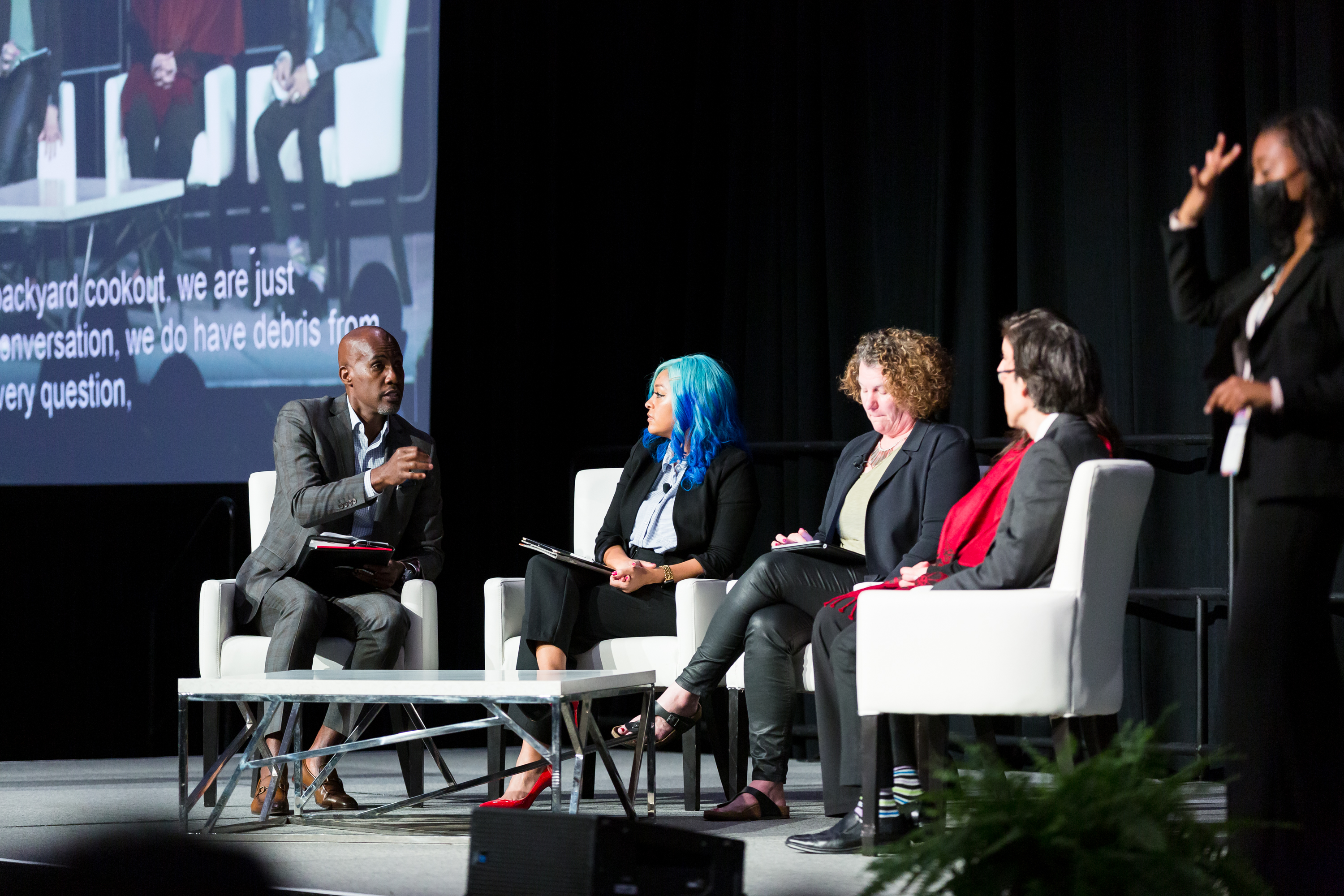 |
| From left to right: Tyrone C. Howard, Eve Louise Ewing, Susan Marie Dynarski, Verónica Nelly Vélez, and Hirokazu Yoshikawa |
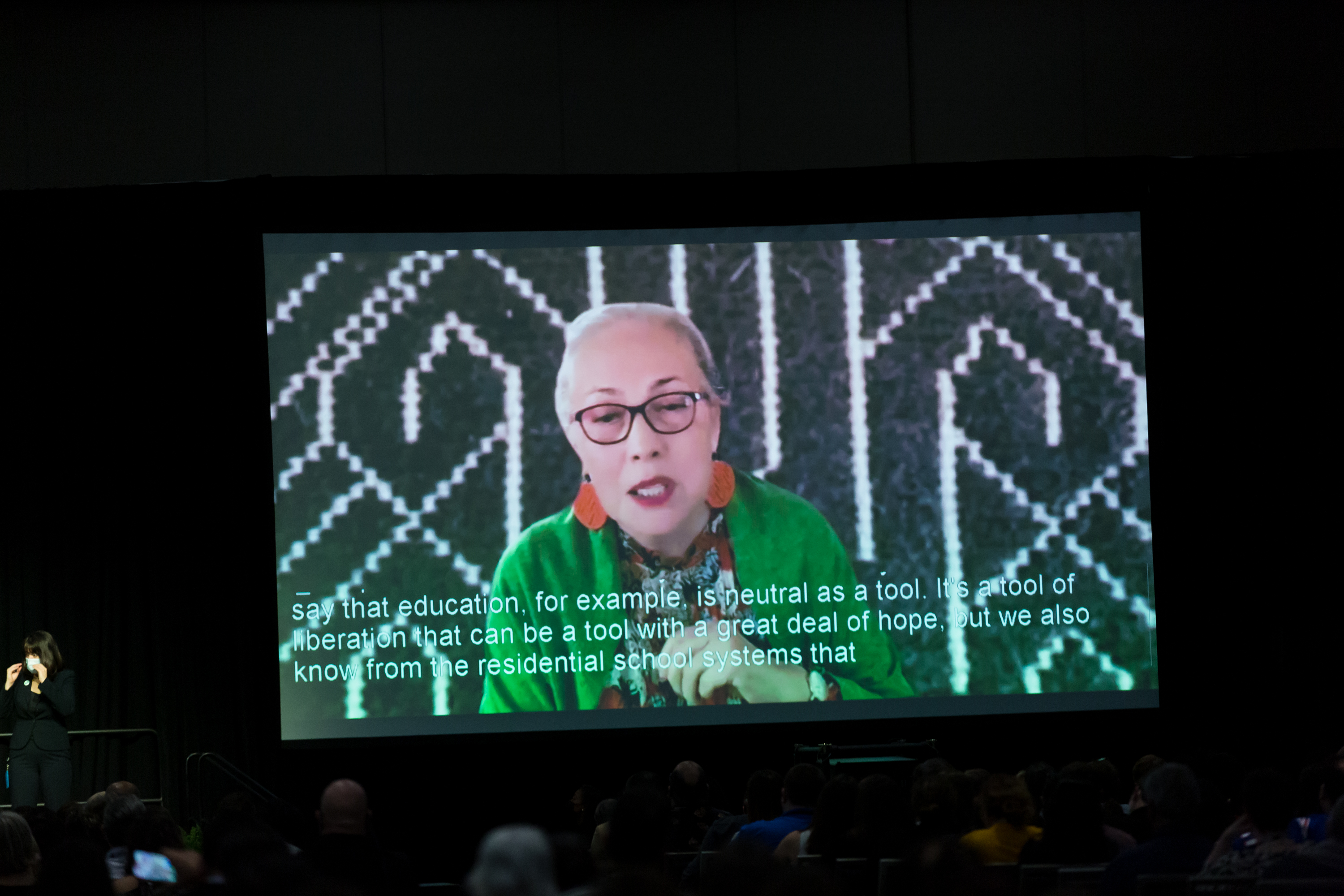 |
| Linda T. Smith (pictured on screen) |
The meeting kicked off with an opening plenary titled “Asking New Questions about Old Inequities: Framing a Research Conversation about Equity in Education.” The session explored the role of education research in advancing equity in education. Moderated by Tyrone C. Howard (University of California, Los Angeles), the session featured panelists Eve Louise Ewing (University of Chicago), Susan Marie Dynarski (Harvard University), Linda T. Smith (Te Whare Wānanga o Awanuiārangi), Verónica Nelly Vélez (Western Washington University), and Hirokazu Yoshikawa (New York University).
Panelists discussed the importance of education researchers connecting with not only leading policy change-makers but also with community organizations at the local level. They emphasized the importance of considering equity and diversity when developing research plans and methodological approaches.
The session was kicked off by performances by students from Lincoln High School in San Diego, featuring a drumline and ballet folklórico, and followed by a performance by the Taupou Samoa Polynesian Dance Troupe.
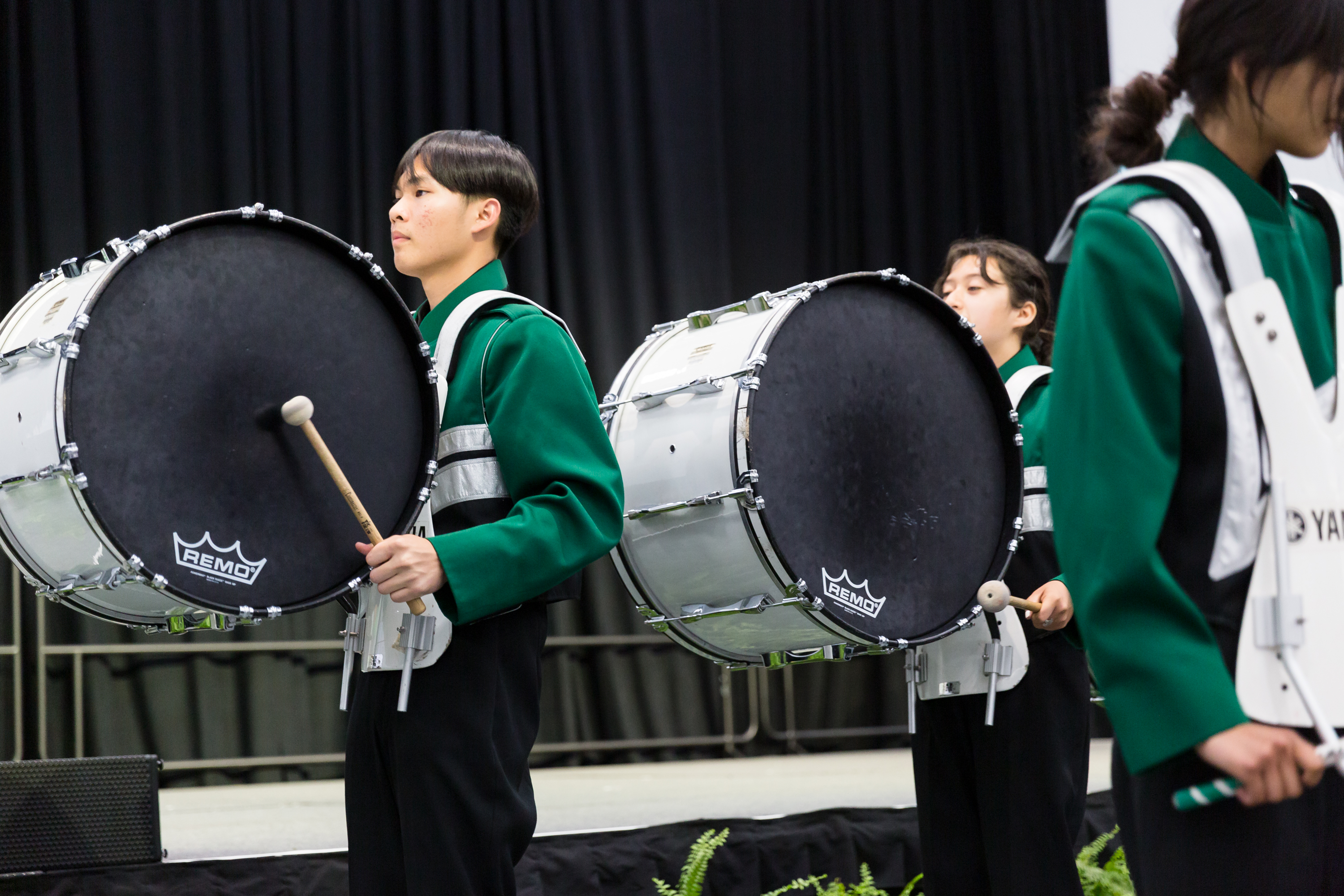 |
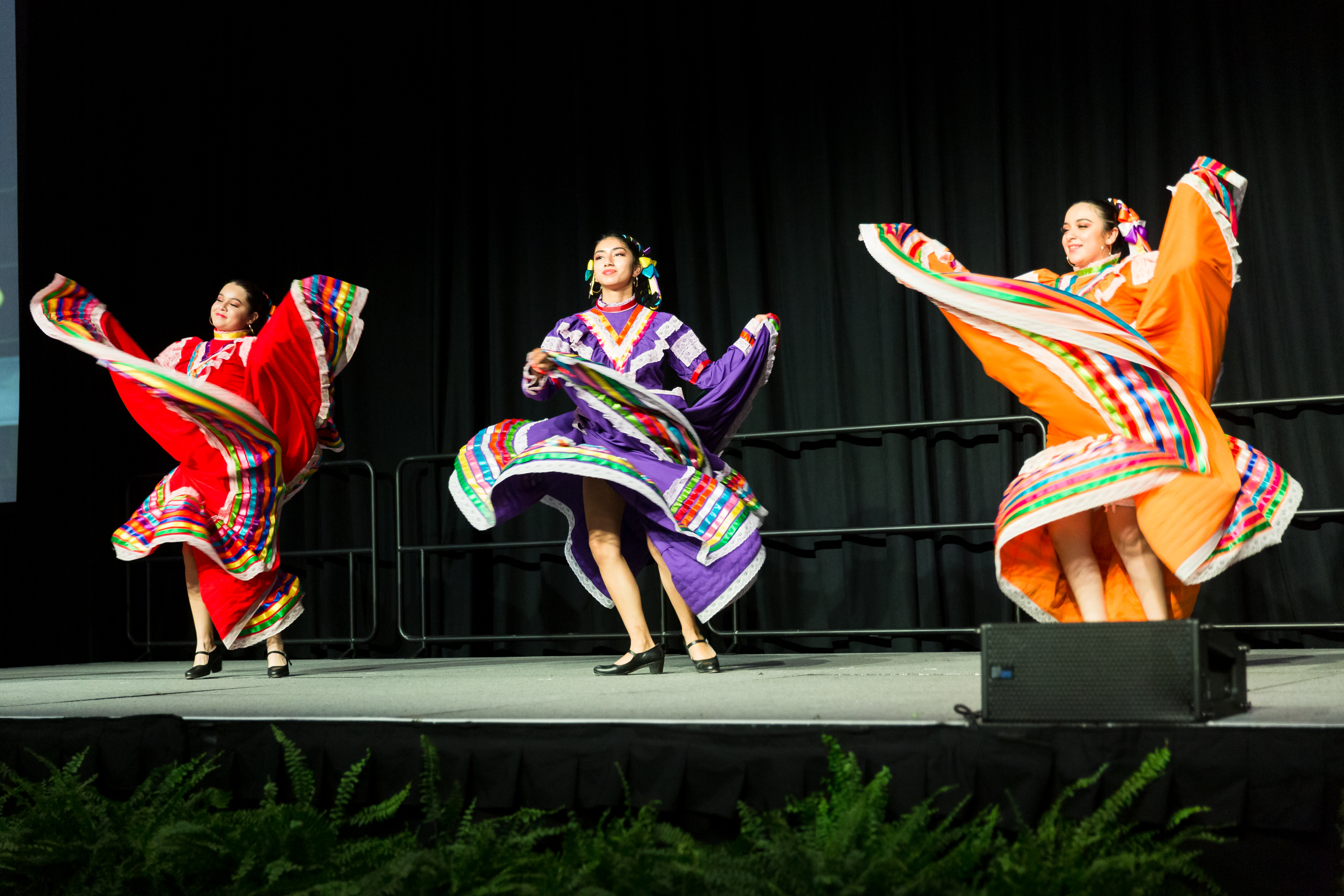 |
| Lincoln High School's Drumline |
Ballet Folklórico |
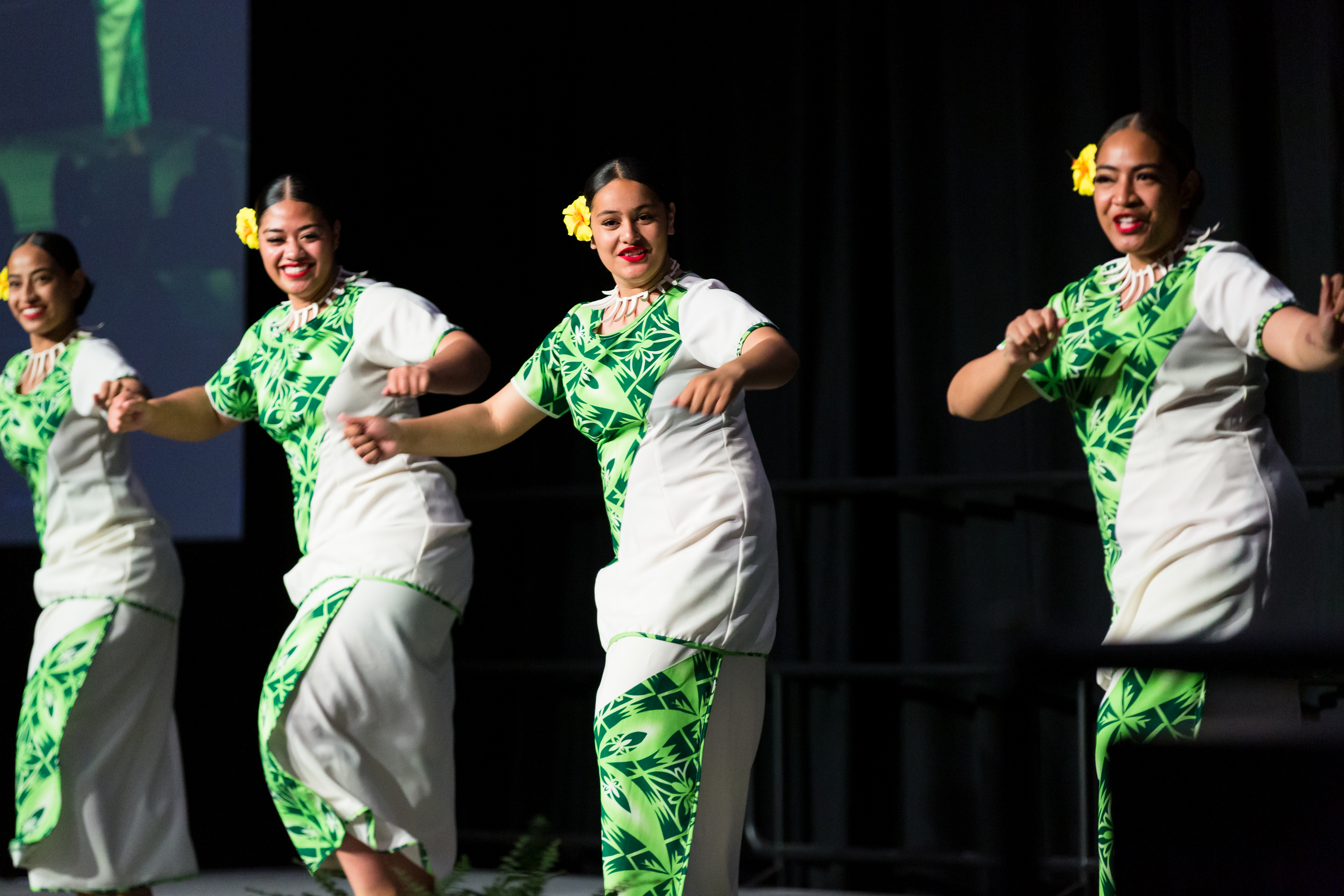 |
| The Taupou Samoa Polynesian Dance Troupe |
On Saturday, April 23, attendees convened for a town hall meeting on addressing censorship in education. As efforts to censor what educators can teach about systemic racism and LGBTQ experiences have spread across the United States, panelists and attendees explored how education researchers can address them in and beyond their own institutions and work in coalitions to ensure that students at all levels of the U.S. educational system receive a high-quality education that prepares them to engage in and sustain a pluralistic, multiracial democracy.
The session was moderated by Dorothea M. Anagnostopoulos (University of Connecticut), Lynn Gangone (American Association of Colleges for Teacher Education), and AERA Executive Director Felice J. Levine. Panelists included Mollie V. Blackburn (The Ohio State University), Mónica Byrne-Jiménez (University Council for Educational Administration), Zeus Leonardo (University of California, Berkeley), Marvin Lynn (Portland State University), Christine E. Sleeter (California State University, Monterey Bay), and sj Miller (Santa Fe Community College).
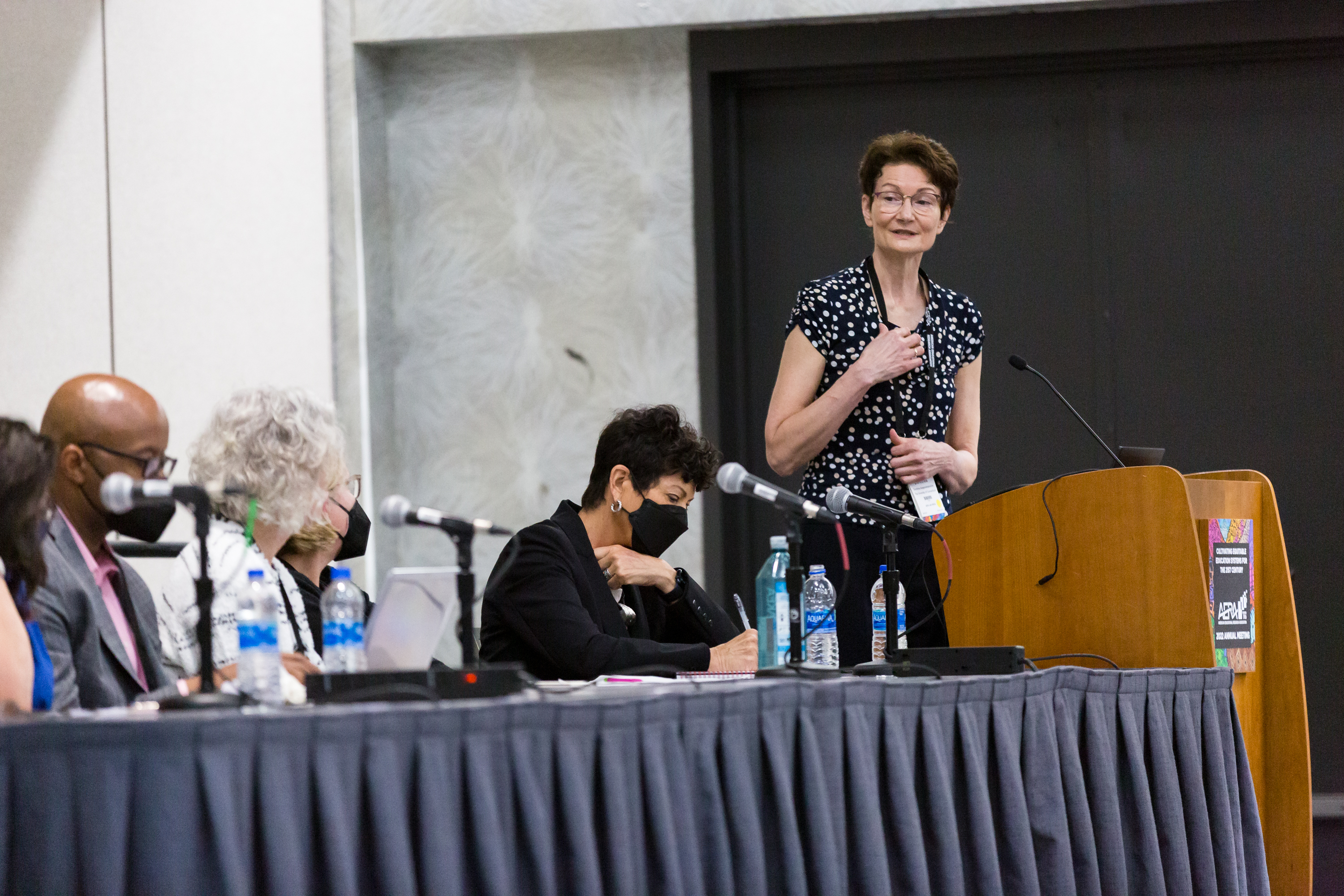 |
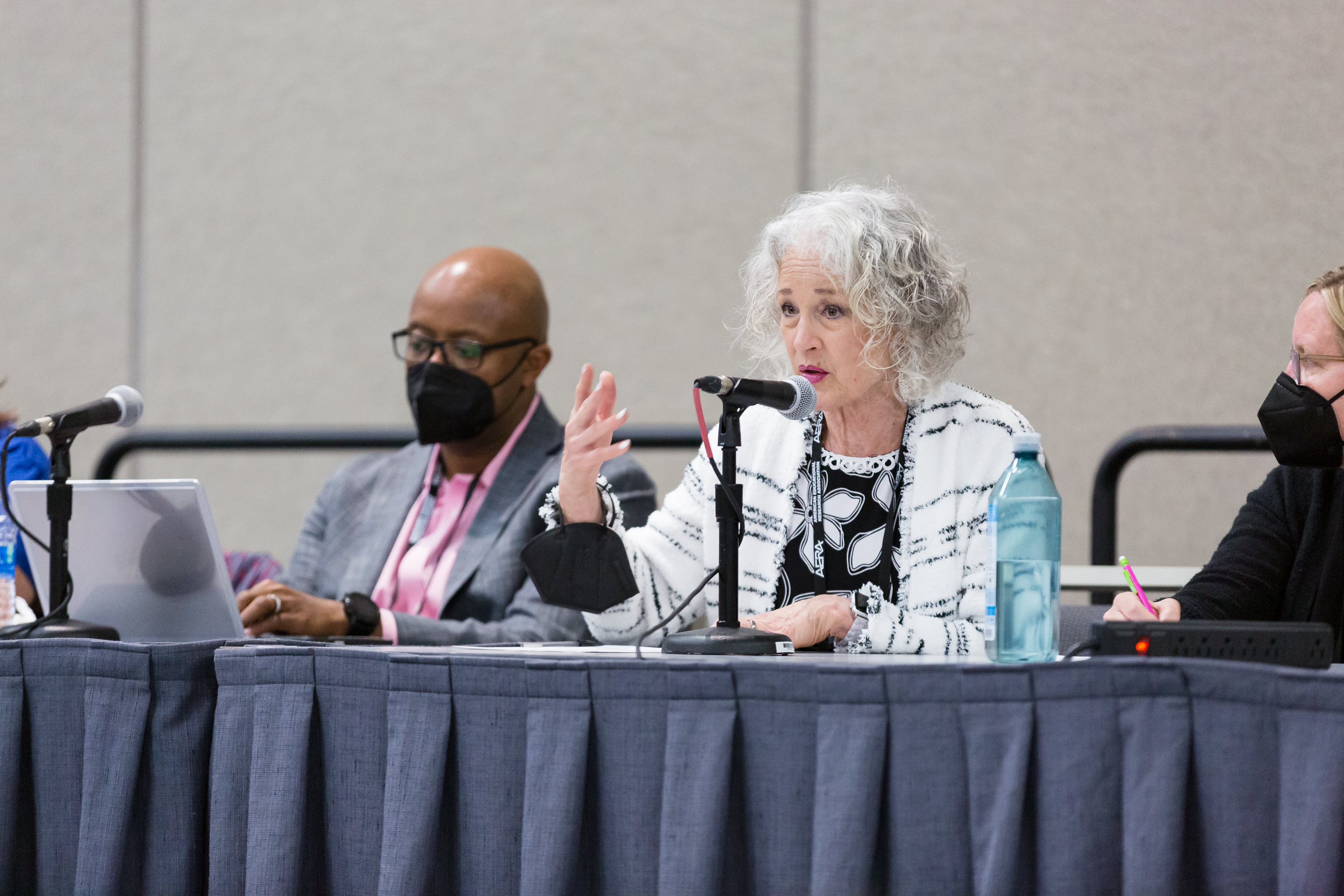 |
| Participants in the town hall meeting on addressing censorship in education |
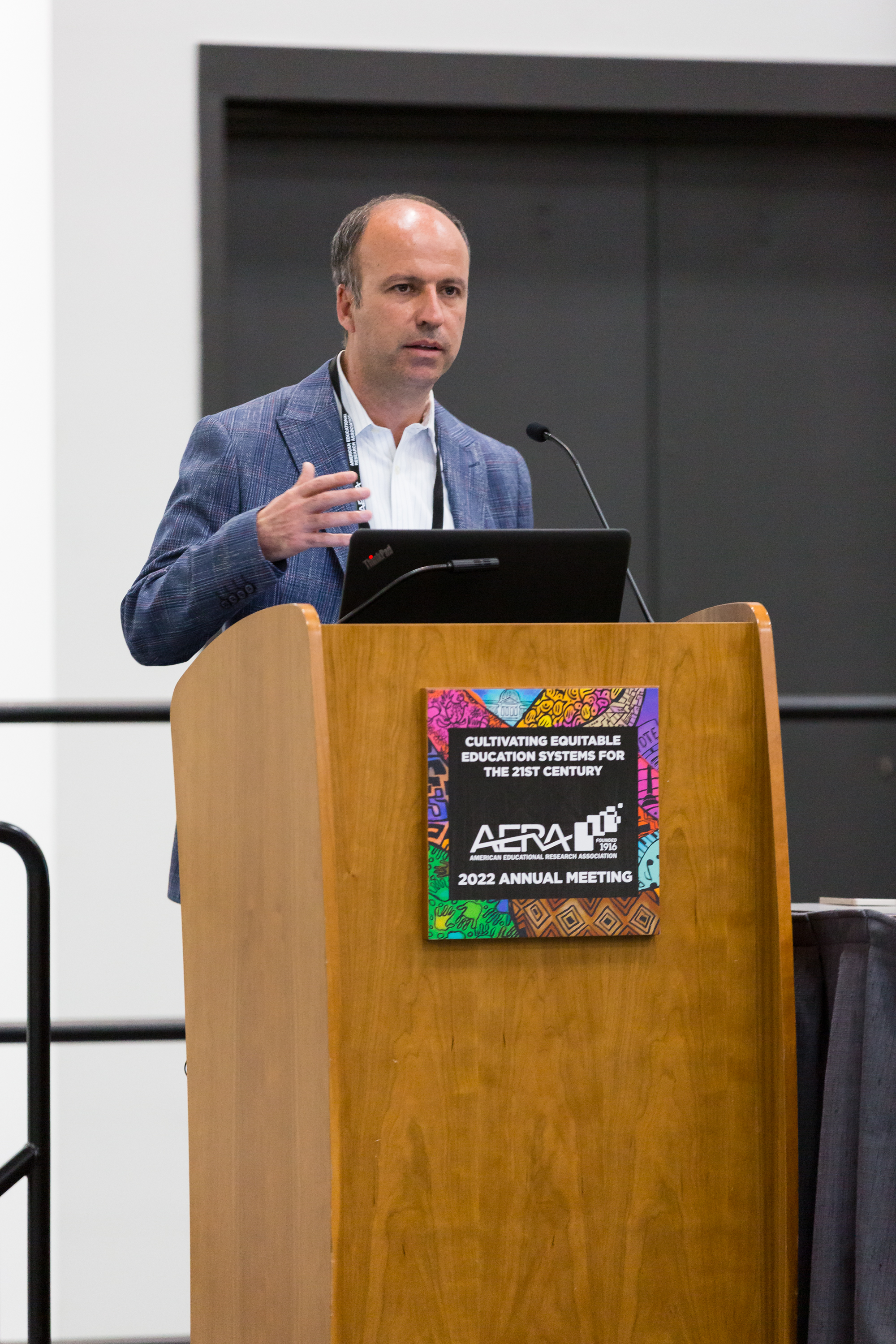 |
| WERA President Mustafa Yunus Eryaman |
On Sunday, April 24, Mustafa Yunus Eryaman (Çanakkale Onsekiz Mart University) delivered the WERA presidential address. During his remarks, Eryaman introduced a multinational and longitudinal project on school evaluation to demonstrate how the use of big data and artificial intelligence may contribute to the quality of public schools.
He noted that evidence-informed school evaluation empowers teachers and school administrators to wisely contemplate how evidence generated from AI and big data research informs their practice in the context of a particular child, family, or community, and then weigh this with knowledge drawn from their professional experience and the experiences of students and parents to develop a culture of school excellence.
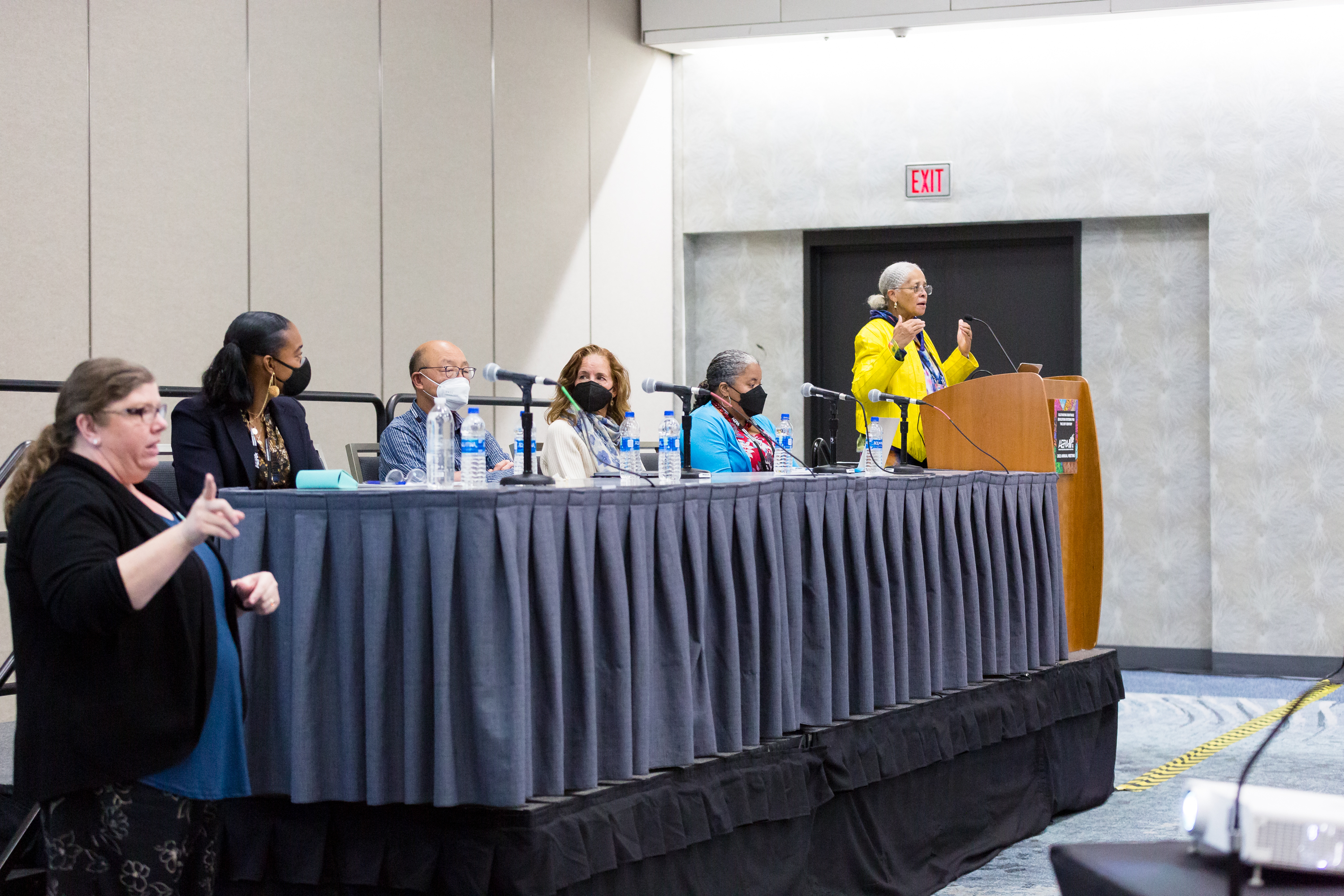 |
| A session from the Edmund W. Gordon Honorary Presidential Symposium Series |
A special feature at the 2022 Annual Meeting was the Edmund W. Gordon Honorary Presidential Symposium Series, which comprised of four sessions focusing on the influence that Gordon has had in advancing education research, including in policy and practice. A compelling and diverse line-up of participants joined Gordon in examining the affirmative development of students, assessment in the service of learning for culturally and linguistically diverse students, and equitable educational opportunity.
Hundreds of videos from meeting sessions held online are available in the on-demand library. They are accessible to all registered attendees for the next 12 months.
The 2023 AERA Annual Meeting will be held in Chicago in April 2023.
|
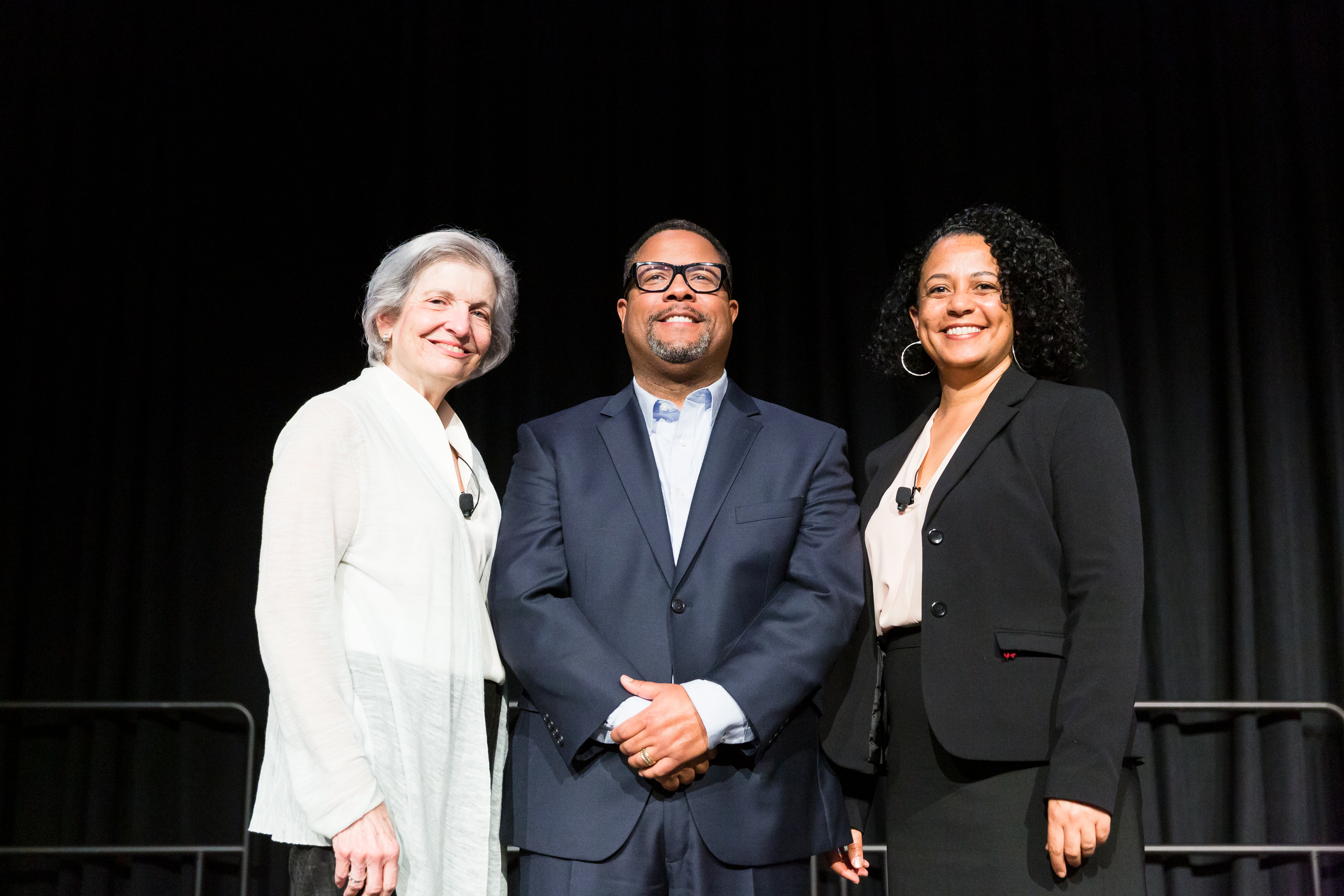
|
| Felice J. Levine, Rich Milner, and Na'ilah Suad Nasir at the Closing Ceremony of the 2022 Annual Meeting |